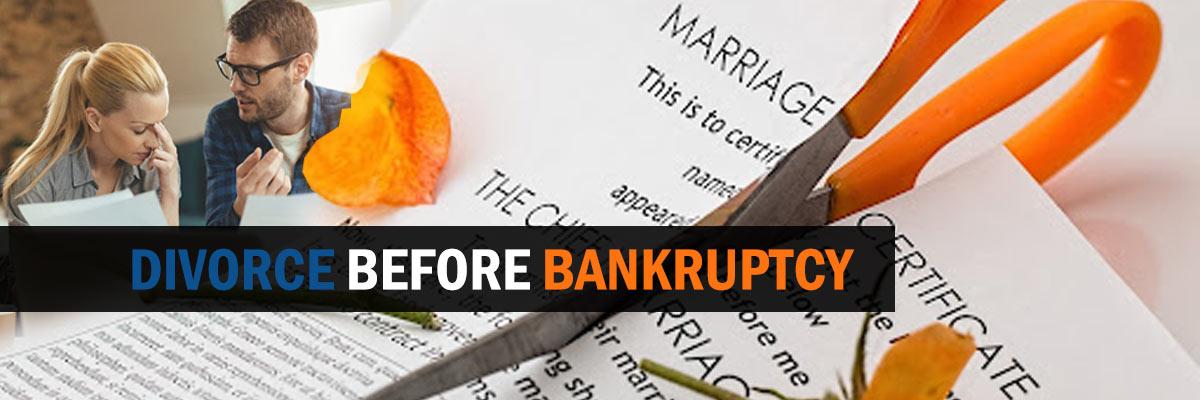Filing Bankruptcy After Your Divorce Is Over
You’ve finalized your divorce, and your divorce decree says your now former spouse owes all the debt, or you split the debt equally, right? Even though the divorce decree dictates how the debt will be split, you still owe all the debt as a community property state in Arizona. Community property laws state that if the debt was incurred during the marriage, both parties owe the debt equally.
This means creditors can come looking for you to pay no matter what the divorce states. Simply put, creditors don’t care about your divorce decree. So, you have a mountain of debt to get rid of. This might be a perfect time to file for bankruptcy and guess what? We are the best Chapter 7 bankruptcy lawyers near you.
You can discharge all of that debt and get a fresh start. However, there are still pitfalls. For example, if your former spouse owes you anything, such as a marital equalization payment, that payment may not be protected in bankruptcy.
You must be made aware of these pitfalls before filing for bankruptcy. You should hire an experienced Chapter 7 bankruptcy attorney in Phoenix Az before filing for bankruptcy. Call Gaudiosilaw today at 623-777-4760 or schedule your free consultation to discuss your case and take a look at your divorce situation before you file for bankruptcy.
Divorce Before Bankruptcy
Divorce first may be better if you do not qualify for Chapter 7 bankruptcy. This is especially true if your total household income is lower after the divorce is finalized. In this case, bankruptcy after divorce may be your best option.
If you are going to file for divorce before filing bankruptcy, then you should consider the following:
- Will your former spouse owe you anything like property or a marital settlement equalization payment? If so, your bankruptcy trustee may take the property or money.
- Is your former spouse going to owe you child support or spousal maintenance? Bankruptcy exemptions protect these payments. However, if you owe your spouse any form of Domestic Support Obligation, these obligations are not dischargeable in bankruptcy.
- How will your debts be divided? Keep in mind that creditors do not care about your divorce. Arizona is a community property state. All the debt in the marriage is owed by both parties regardless of who took out the credit cards or other debt. Even if your divorce awards the debt to your former spouse, that does not relieve you of your obligation to pay it.
- If you own your home, how will it be divided? Consider this question and speak with your attorney about how the division of the house will affect you in your bankruptcy.
Filing for Bankruptcy After Your Divorce: Pros and Cons
Going through a divorce can be emotionally and financially draining. After a divorce, some individuals may find themselves in a financial situation where filing for bankruptcy becomes a consideration. While bankruptcy can offer relief, it also has its drawbacks. Here are some of the pros and cons of filing for bankruptcy after your divorce.
Pros | Cons |
|---|---|
|
|
Conclusion
Filing for bankruptcy after a divorce can be a tough decision. It’s important to weigh the pros and cons carefully and to consult with the best Arizona bankruptcy lawyers close to you to determine whether bankruptcy is the right option for you. While bankruptcy can provide relief from overwhelming debt, it can also have a negative impact on your credit score and financial future. It’s important to consider all factors before making a decision.
If you are trying to decide whether you should file for bankruptcy or divorce first, read this article.


